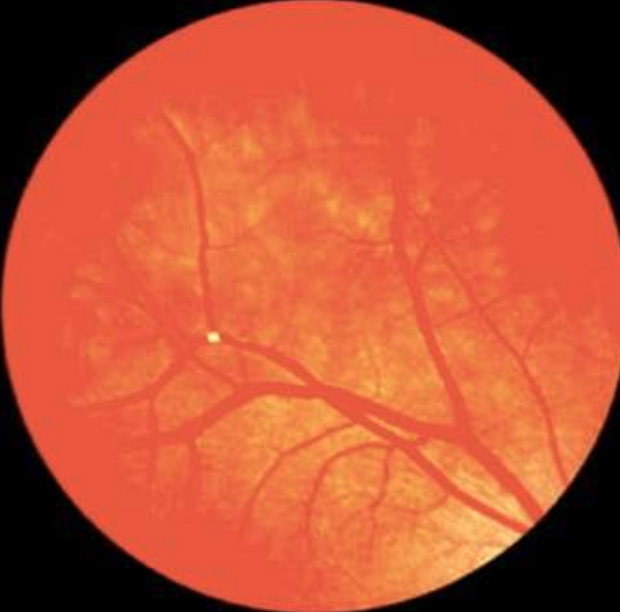 |
|
While both treatments have their place, a recent meta-analysis reported that anti-VEGF therapy produced better visual and structural outcomes. Photo: Julie Rodman, OD. Click image to enlarge. |
Both steroids and anti-VEGF agents have a role in the management of macular edema secondary to retinal vein occlusion (RVO), but there’s a lack of generalized treatment recommendations for this condition. A recent literature review looked at the efficacy and safety of these two treatment mainstays and reported that anti-VEGF injections seem to have an edge over steroids.
The researchers identified randomized controlled trials published between 2005 and 2021 in three literature databases and performed a random effects meta-analysis. A total of 867 eyes from 11 studies were included. The researchers reported that intravitreal anti-VEGF agents were associated with significantly better BCVA and lower retinal thickness compared with intravitreal steroids. Anti-VEGF agents were also significantly associated with a lower incidence of IOP-related adverse events, cataract development/progression and conjunctival hemorrhage.
Overall, anti-VEGF therapy for macular edema secondary to RVO was superior to steroid treatment in terms of BCVA, OCT outcomes and adverse events, the researchers concluded in their paper. “This updated analysis provides an important context for the treatment of macular edema secondary to RVO and provides further evidence of the superiority of anti-VEGF agents relative to steroid treatment in this setting,” they wrote.
Patil NS, Hatamnejad A, Mihalache A, et al. Anti-vascular endothelial growth factor treatment compared with steroid treatment for retinal vein occlusion: a meta-analysis. Ophthalmologica. October 26, 2022. [Epub ahead of print]. |


